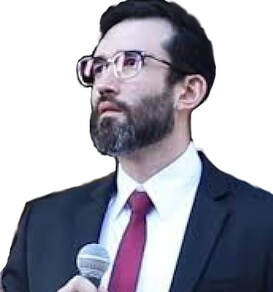Social Justice Team
|
We organize educational events to motivate participation in action for social justice.
We establish partnerships with other organizations working for social justice. We partner with Good Trouble St. Johns, an initiative of Compassionate St. Augustine, that meets monthly to educate about injustice in our community and acts to remedy it. Please join our Social Justice Google Group. Members and Friends may sign up to receive timely information about social justice history and events. Currently, you will receive information from selected dates on the Equal Justice Initiative’s calendar featuring historic events in Black/American history. See example below. Current effort: To try and work with the AAUW's Karen Zalkin to coordinate the writing and sending of postcards to formerly incarcerated individuals to remind them of their rights. Please join us to look for more opportunities to engage in social and racial injustice work. We welcome your suggestions and interest! |
Last Year's Social Justice Events
Fall, 2023: Film series
Winter, 2024: A Workshop in 4 Sessions

Presenter: Pastor Phillip Baber
Pastor Baber has extensive background in racial studies from his Law School and Seminary training. He led Jacksonville’s Interfaith Coalition for Action, Reconciliation and Empowerment (ICARE); worked directly with BIPOC-led organizations on multiple social justice campaigns; and presented lectures to local churches and democratic party organizations on white supremacy and anti-racism. He presents an outstanding role model for those who want to work passionately, effectively, and respectfully, for racial justice in our community. Pastor Baber will present on Zoom and be recorded for future reference in the archives of our website. Time: 10:30 – Noon. Lunch, catered by a Black business, follows the session in our downstairs social hall. See dates below. Workshop title: “Whiteness as Culture and Racism as Cultural Prejudice: Examining Anti-Racism Identity Formation through the Stage Development Theories of Milton Bennett and Janet Helms.” Note: This workshop is not designed to be an “Anti-Racism 101” in that it does not offer a simple list of “do’s and don’ts” for white people interested in avoiding racist behavior. Instead, it provides a larger theoretical framework for understanding racism, how it manifests as a critique of cultures, and how white Americans can (and should) develop a healthy racial identity and culture with a decidedly anti-racist orientation. The course was designed for Unitarian Universalist congregations, but the material is universally applicable, meaning non-UUs would feel welcome in participating. Session 1 (January 20): Race and Racism. Introductions. We will ask and answer very basic (but complex) questions, such as: “What is race?” and “What is racism?” Session 2 (February 3): Race and Culture. We will define “culture” and understand its relationship to race. We will consider three different approaches to culture and their respective epistemological bases in Newtonian, Einsteinian, and quantum perspectives in the hard sciences. We will contrast monoculturalism v. multiculturalism to understand why so many eschew pluralism in their attempt to re-create a monocultural society. Session 3 (February 17): We will examine Milton Bennet’s Developmental Model of Intercultural Sensitivity (DMIS) and consider how it can be applied to understanding how different people relate to the idea of race in a multicultural world. Session 4 (March 2): Janet Helms’s White Identity Model. We will attempt to define “White American Culture.” We will consider Helms’s theory of what a healthy white American culture might look like. Follow up: We hope to meet after the series to discuss your thoughts, what you’d like next: possible ways to ally ourselves for effective action. Questions? Judy Olson and Gina Jonas, Social Justice Team co-chairs, would be happy to talk with you about any questions/concerns. If you are a member or friend you will find our contact information in the UUFSA Directory. If not, please contact the UUFSA by email, [email protected], and one of us will respond.
|


